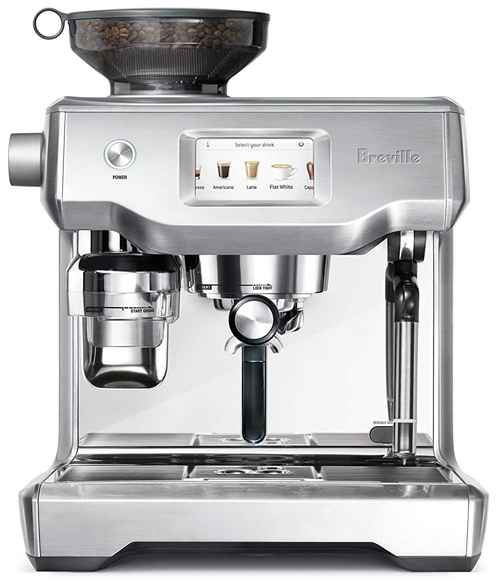Cafe Latte Homemade Recipe [+Tips]
Note: This page contains affiliate links.
As an Amazon Associate, I earn from qualifying purchases when you click on the link, but you are not charged extra.
Ah, the café latte – that silky, creamy cup of coffee bliss that many of us crave first thing in the morning or during a cozy afternoon break. It’s that perfect blend of espresso’s rich, bold punch and steamed milk’s smooth, velvety embrace. But here’s the thing: you don’t have to trek out to your local coffee shop every time you want this luscious beverage. Making a café latte at home is not only incredibly satisfying but also super simple once you get the hang of it. Imagine waking up and having your own barista-quality latte waiting for you, tailored just the way you like it, without the coffeehouse price tag or the long lines. In this guide, I’ll walk you through every step-from ingredients to expert tips and even some fun variations-so you can master the art of the homemade café latte like a pro!
- Old World Christmas Beans: Tastes like the holidays in every cup — discover the cozy magic of Old World Christmas Beans before the season slips away.
- Kirkland Sumatra French Roast : Dark, bold, and wildly smooth—why Kirkland’s Sumatra French Roast is the best-kept secret of serious coffee drinkers.
- Hot Fudge Whole Bean Coffee : What happens when dessert meets coffee? Meet the decadent whole bean that tastes like hot fudge—but better.
- Aroma Ridge Guatemala Antigua Medium Roast : From the highlands of Guatemala to your morning mug—this rich, balanced roast is waking up coffee lovers everywhere.
- Juan Valdez Cumbre Colombian Coffee : Crafted by Colombia’s most iconic coffee legend—why Cumbre is a must-try for fans of bold, authentic flavor.
Contents
- 1 Ingredients For Café Latte Homemade Recipe
- 2 How To Make Café Latte Homemade?
- 3 Expert Tips
- 4 Recipe Variations
- 5 Final Words
- 6 FAQs
- 6.1 What Ingredients Do I Need For A Homemade Cafe Latte?
- 6.2 How Do I Make Espresso For A Cafe Latte At Home?
- 6.3 Can I Use Regular Coffee Instead Of Espresso For A Cafe Latte?
- 6.4 What Is The Best Milk To Use For A Homemade Cafe Latte?
- 6.5 How Do I Froth Milk For A Cafe Latte At Home?
- 6.6 How Do I Assemble A Cafe Latte At Home?
- 6.7 How Can I Make A Flavored Cafe Latte At Home?
- 6.8 Can I Make A Dairy-free Cafe Latte?
- 6.9 What Is The Ideal Temperature For Milk In A Cafe Latte?
- 6.10 How Can I Make A Cafe Latte Without An Espresso Machine?
Ingredients For Café Latte Homemade Recipe
The beauty of a homemade café latte lies in its simplicity. You don’t need a laundry list of fancy ingredients-just a few staples that, when combined, create magic:
-
Espresso Or Strong Coffee
The heart and soul of your latte. Traditionally, a café latte uses a shot or two of espresso. If you don’t have an espresso machine, no worries-you can use a strong brewed coffee or even instant espresso powder.
-
Milk
Whole milk is the classic choice for that creamy texture and rich flavor. But feel free to use any milk you prefer-skim, 2%, oat milk, almond milk, soy milk, or even coconut milk. Each will give your latte a slightly different taste and texture.
-
Sweetener (Optional)
Sugar, honey, maple syrup, or flavored syrups like vanilla or caramel can be added if you want a sweeter latte.
-
Flavorings (Optional)
Ground cinnamon, cocoa powder, nutmeg, or vanilla extract-these can elevate your latte to the next level and make it feel extra special.
How To Make Café Latte Homemade?
Alright, now let’s get into the fun part-making the latte itself! Here’s a step-by-step process that’s easy to follow and guaranteed to make your kitchen smell amazing:
-
Brew Your Espresso Or Strong Coffee
- If you have an espresso machine, pull one or two shots of espresso directly into your favorite mug or cup.
- No espresso machine? No problem. Brew about 1/4 cup of very strong coffee using a French press, AeroPress, or drip method, or dissolve 1-2 teaspoons of instant espresso powder in hot water.
-
Heat The Milk
- Pour about 3/4 cup of milk into a small saucepan or microwave-safe container.
- Heat the milk gently over medium heat or in the microwave until it’s steaming but not boiling (about 150°F or 65°C if you want to be precise).
-
Froth The Milk
- Use a handheld milk frother, a French press, or even a jar with a lid to froth the milk. Shake or pump vigorously until you get a nice foamy top.
- The goal is to create a creamy, velvety foam that will sit beautifully on your espresso.
-
Combine And Serve
- Pour the steamed milk over your espresso shot(s), holding back the foam with a spoon.
- Then, spoon the foam on top to create that iconic latte look.
- Sweeten or add flavorings if desired.
-
Optional Garnish
- Sprinkle a pinch of cinnamon, cocoa powder, or nutmeg on top for a finishing touch.
Expert Tips
Here’s where the magic happens-little nuggets of wisdom to take your latte game from ’meh’ to magnificent:
-
Temperature Is Key
Overheating milk can scorch it, causing a burnt flavor. Aim for that perfect steaming temperature around 150°F (65°C)-warm, but not boiling.
-
Frothing Without Fancy Gadgets
No frother? No worries. Shake your hot milk vigorously in a tightly sealed jar for 30-60 seconds. You’ll get a surprisingly good foam.
-
Quality Of Coffee Matters
The espresso or strong coffee you use sets the base tone. Use freshly ground coffee beans for the best flavor.
-
Use Whole Milk For Creaminess
If you want that luxurious latte texture, whole milk or at least 2% is best. Non-dairy milks can be frothy but often have a different texture-experiment and find your fave!
-
Don’t Rush Frothing
Froth the milk slowly and steadily to get a smooth, dense foam rather than big bubbles.
Recipe Variations
Feeling adventurous? Here are some fun and tasty ways to switch things up with your homemade café latte:
-
Vanilla Latte
Add 1 teaspoon of vanilla extract or vanilla syrup to your espresso before adding milk.
-
Caramel Latte
Drizzle caramel syrup into the cup and swirl it before pouring the milk.
-
Mocha Latte
Stir in 1-2 tablespoons of cocoa powder or chocolate syrup with your espresso for a chocolatey twist.
-
Spiced Latte
Add a pinch of cinnamon, nutmeg, and even cardamom to your milk before frothing for a warming spice blend.
-
Iced Café Latte
Brew your espresso and pour it over ice, then add cold milk. No frothing needed but just as delicious and refreshing!
Final Words
Making a café latte at home is one of those simple pleasures that transforms your daily coffee ritual into something truly special. The process connects you to your drink in a way that pre-packaged coffees or drive-thru orders just can’t match. Plus, it’s a fantastic skill to show off when friends come over-your own personal café in the comfort of your kitchen!
Remember, it’s all about experimenting to find your perfect balance of espresso strength, milk creaminess, and sweetener level. Whether you stick to the classic or try one of the fun variations, each cup you make is a little celebration of flavor, aroma, and love.
FAQs
What Ingredients Do I Need For A Homemade Cafe Latte?
To make a homemade cafe latte, you will need fresh espresso or strong brewed coffee, milk (preferably whole milk for creaminess), and optionally, sweetener such as sugar or flavored syrup. You can also use plant-based milk like almond, oat, or soy as alternatives.
How Do I Make Espresso For A Cafe Latte At Home?
To make espresso at home, you can use an espresso machine or a stovetop Moka pot. Grind your coffee beans to a fine texture, and use approximately 18-20 grams of coffee for a double shot of espresso. Brew it and set it aside for your latte.
Can I Use Regular Coffee Instead Of Espresso For A Cafe Latte?
Yes, you can use strong brewed coffee as a substitute for espresso, though it may not provide the same intense flavor and crema. Brew your coffee with a higher coffee-to-water ratio for a stronger taste.
What Is The Best Milk To Use For A Homemade Cafe Latte?
Whole milk is generally preferred for a creamy and rich texture in a cafe latte, but you can also use skim, oat, almond, or soy milk for different textures and flavors. Oat milk is a popular alternative because it froths well and has a slightly sweet taste.
How Do I Froth Milk For A Cafe Latte At Home?
To froth milk, you can use a milk frother, a handheld steam wand, or a French press. Heat the milk to about 150°F (65°C), then froth it until it’s light and foamy. If you don’t have a frother, you can also shake warm milk in a jar vigorously or use a whisk.
How Do I Assemble A Cafe Latte At Home?
To assemble a cafe latte, start by brewing your espresso. While the espresso is brewing, froth your milk. Pour the hot espresso into a mug, then slowly add the frothy milk, holding back the foam with a spoon. Top with a thin layer of foam.
How Can I Make A Flavored Cafe Latte At Home?
To make a flavored cafe latte, simply add flavored syrups (like vanilla, caramel, or hazelnut) to the espresso before adding the milk. You can also use flavored coffee beans or infuse the milk with spices like cinnamon or nutmeg for added flavor.
Can I Make A Dairy-free Cafe Latte?
Yes, you can make a dairy-free cafe latte by using plant-based milks like oat, almond, coconut, or soy milk. Some plant-based milks froth better than others, with oat milk being one of the most popular for a creamy and frothy texture.
What Is The Ideal Temperature For Milk In A Cafe Latte?
The ideal temperature for milk in a cafe latte is between 150°F (65°C) and 160°F (71°C). This is hot enough to produce a creamy texture without scalding the milk, which can alter its taste and texture.
How Can I Make A Cafe Latte Without An Espresso Machine?
You can make a cafe latte without an espresso machine by brewing strong coffee using a French press, pour-over, or AeroPress method. While brewing your coffee, froth the milk using a handheld frother, French press, or whisk, then combine them as you would in a traditional latte.

